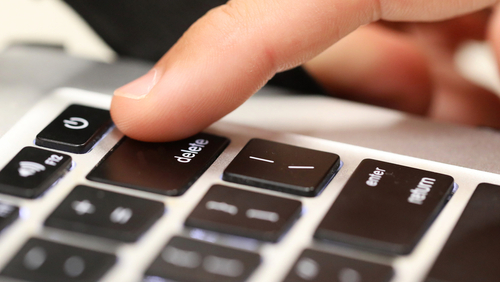Your social media posts, photos, videos, and even your “likes” play a significant role in your personal injury case in Canada. Insurance companies and the lawyers for the at-fault party will review your online presence, looking for any evidence they can use to question the seriousness of your injuries and reduce the value of your claim.
The main issue is context. A single photo of you smiling at a family dinner or a check-in at a public place could be presented in a way that suggests your life has not been significantly altered by your injuries, even if that isn’t the whole story. These digital snapshots rarely capture the full reality of your daily pain or limitations, which is why speaking with an Edmonton personal injury lawyer can help you protect your case.
If you have questions or concerns about your social media and how it might affect your claim, we’re available to answer them. Call MNH Injury Lawyers today for a no-cost, no-obligation consultation at (888) 664-5298.
Who Is Looking at Your Social Media and Why?

After an injury, it is common for the other side’s legal and insurance teams to look into your background to understand the claim. Your digital life is one of the first places they check, which is why many people quickly realize, “I need a lawyer” to protect their rights.
The “Who”: The Investigation Team
Several different parties may review your online profiles. These include:
- Insurance Adjusters: These are the individuals who first handle your claim. They might perform an initial review of public social media profiles to gather early information about you and your lifestyle.
- Defence Lawyers: Once a lawsuit is filed, the legal team for the at-fault party will conduct a more thorough search as part of their evidence-gathering process.
- Private Investigators: In some cases, an insurance company may hire investigators to perform a deep dive into a person’s digital footprint and real-world activities.
The “Why”: Balancing Their Books
An insurance company is a business that must manage its financial risk. Their objective is to investigate the claims made against their policies to determine their validity and value. They are looking for any information that contradicts your claim. This includes evidence suggesting:
- Your injuries are less severe than you have stated.
- Your physical limitations are exaggerated.
- You are not suffering emotionally or psychologically.
- The accident has not impacted your enjoyment of life.
The “What”: The Digital Evidence They Hunt For
Investigators will look at a wide range of your online activity. Nothing is too small to be noticed. They are interested in:
- Posts and Status Updates: Comments about your activities, mood, or future plans.
- Photographs and Videos: Images of you engaging in physical activities, attending social events, or going on vacation.
- Location Check-ins and Tags: Geotags that place you at a gym, park, concert, or other location that could be interpreted as being inconsistent with your injuries.
- “Likes” and Comments: Your interactions on others’ posts can also be scrutinized.
- Friends’ and Family’s Accounts: They will look at photos and posts where you have been tagged by others.
How a Perfectly Innocent Post Can Be Twisted
As mentioned, the danger of social media evidence lies in its lack of context. A single moment captured in a photo or a short text update rarely tells the full story of your life after an injury. Defence lawyers may present this information to suggest your injuries are not as limiting as you claim, which is why it’s important to choose a personal injury lawyer who can challenge these arguments effectively.
The “Good Day” Photo
Scenario: After weeks of being unable to leave the house, you finally feel well enough to attend a family barbecue. A relative takes a picture of you smiling and posts it online.
How It’s Used: The defence lawyer may present this single photo to a judge or jury and argue, “This person claims to be in constant pain, yet here they are enjoying a party. Their injuries cannot be as serious as they claim.”
The Throwback Post
Scenario: You post an old photo from a hiking trip you took two years before your accident with the caption, “Missing this.”
How It’s Used: An investigator might save that photo without the date or caption. It could then be presented as evidence that you are still physically capable of strenuous activities after your injury.
The Vague Update
Scenario: You post, “Finally feeling a bit better today!”
How It’s Used: This can be interpreted to mean you are fully recovered, even if “better” simply means your pain level dropped from an 8 to a 6 out of 10 for a few hours.
The Friendly Tag
Scenario: A friend tags you in a post about running a 5K race, perhaps just to include you in their circle of friends receiving the update.
How It’s Used: The defence may argue that your interest or association with this type of activity shows your injuries are not preventing you from considering a return to a physically active life.
What Does the Law Say About Using My Social Media?
It’s Considered a “Document”
Canadian courts, particularly in provinces like Alberta, have established that information on social media—including posts, photos, and messages on a “private” profile—qualifies as a “document” under the Alberta Rules of Court. Simply put, this means your social media content is subject to the same rules of disclosure as your emails, financial records, or medical reports during a lawsuit. You have an obligation to produce any social media content that is relevant to the case.
The Test for Admissibility
For a social media post to be used as evidence, it must meet several criteria:
- Relevance: The post must logically relate to a matter in the case, such as the extent of your injuries or your ability to work. Canadian courts give a wide berth to what is considered relevant in a personal injury claim.
- Authenticity: The side presenting the evidence must be able to prove that the account and the post actually belong to you and have not been altered.
- Probative Value vs. Prejudice: The evidence’s ability to prove a fact must outweigh its potential to create unfair prejudice against you. A court might have to decide if a photo’s value as evidence is more important than the intrusion into your privacy.
Are My “Private” Accounts Safe?
No. This is one of the most common misconceptions. Courts across Canada, including Alberta courts, have repeatedly ordered individuals to produce content from their private or “friends-only” profiles.
The legal reasoning is that the need to access relevant evidence in the pursuit of truth outweighs a person’s expectation of privacy for content they have shared, even with a limited audience. While defence lawyers are not typically permitted to go on “fishing expeditions,” if they can show a reasonable basis to believe your private accounts contain relevant information, an Alberta court is likely to order its disclosure, which often leaves people asking, can a lawyer help protect their rights in this situation.
Do NOT Delete Your Posts or Accounts

When you realize your social media could be used in your case, your first instinct might be to “clean up” your profiles by deleting old posts or deactivating your accounts. This is a serious mistake that might significantly harm your case.
The Concept of Spoliation
When you are in a lawsuit or can reasonably see one coming, you have a legal duty to preserve all relevant evidence. Intentionally deleting social media posts, messages, or entire profiles is known as the “spoliation of evidence.”
Why This Hurts Your Case
If you delete evidence, the court can draw an “adverse inference.” This is a legal concept that simply means the judge is allowed to presume that the evidence you destroyed would have been harmful to your case. This presumption can be very damaging to your credibility. The defence will argue that you deleted the content because you had something to hide, which makes you look dishonest.
What to Do Instead
Leave everything as is. Do not delete anything. The best course of action is to stop posting altogether and discuss your accounts with your lawyer. An experienced Edmonton personal injury lawyer will guide you on how to handle your digital presence without jeopardizing your case.
Practical Steps to Protect Your Claim in the Digital World
While you cannot erase your digital past, you should take immediate, practical steps to protect your personal injury claim going forward.
Step 1: Stop Posting Immediately
The safest strategy is a complete social media blackout. Refrain from posting any new content, photos, or updates on any platform—Facebook, Instagram, TikTok, X (formerly Twitter), etc.—until your case is fully resolved, and contact a lawyer for guidance on protecting your claim.
Step 2: Adjust Your Privacy Settings
Set every one of your social media profiles to the highest possible privacy setting. While this is not a complete shield from legal disclosure, it prevents casual observers and investigators from easily accessing your information.
Step 3: Instruct Your Friends and Family
Politely ask your close friends and family members to avoid posting photos of you, tagging you in posts, or discussing your accident or recovery online. Explain that it is an important step to protect your legal case.
Step 4: Do Not Accept New Friend or Follower Requests
Be wary of new requests from people you do not know. In some instances, investigators may create profiles to try to gain access to your private accounts.
Step 5: Be Transparent With Your Lawyer
Let us know about all your social media accounts and any posts you think could be taken out of context. This allows us to prepare a response and frame the evidence properly before the defence even brings it up, which is another reason why you should choose the right personal injury lawyer to guide you through the process.
Frequently Asked Questions About Social Media and Injury Claims
Can my private messages on WhatsApp or Facebook Messenger be used as evidence?
Yes, potentially. Private messages are also considered “documents” and can be subject to disclosure if they contain information relevant to your claim, such as admissions about the accident or discussions about your physical activities.
What if my Instagram or TikTok account is under a fake name?
Using a pseudonym does not protect you. Investigators can often link pseudonymous accounts to you through various digital forensic techniques. If the account is discovered, its contents are just as discoverable as a profile under your real name.
I was injured in Alberta. Does this advice apply to my benefits claim with my own insurer?
Yes. Your own insurance company, when processing your Accident Benefits claim, will also investigate to verify the extent of your injuries and limitations. The same principles apply: they can and often do review social media to assess your claim.
Does this include professional sites like LinkedIn or dating apps like Bumble?
Absolutely. A defence lawyer might review your LinkedIn profile to see if your listed skills or work history contradicts your claimed inability to work. Similarly, photos or activity descriptions on a dating profile can be used to question your claimed physical or social limitations.
How long after my case is settled should I wait to start posting again?
It is wisest to wait until your case is fully and finally concluded—meaning all settlement documents are signed and payment has been received. It is best to discuss the specific timing with your lawyer before resuming your normal online activity.
Let Us Handle the Digital Details While You Focus on Healing

Your energy should be dedicated to your physical and emotional recovery, not to worrying about how a Facebook post from three years ago might be used against you. The digital landscape has added a layer of complexity to injury claims, but it is a layer we are fully prepared to manage.
Let our team at MNH Injury Lawyers take that weight off your shoulders. We will handle the legal strategy so you can focus on what truly matters.
For a free, confidential discussion about your case, call us at (888) 664-5298 today.